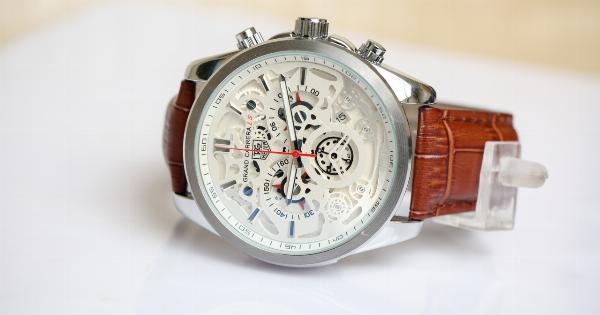Developing your child’s hearing abilities is crucial for their overall development and well-being. Good hearing skills enable children to communicate effectively, learn new concepts, and engage with the world around them.
In this article, we will discuss various strategies and techniques to enhance your child’s hearing abilities.
The importance of early intervention
Early intervention plays a significant role in developing a child’s hearing abilities. The first few years of a child’s life are crucial for language and auditory development.
By identifying and addressing any hearing issues in the early stages, you can provide your child with the support they need to develop their hearing skills effectively.
Be aware of signs of hearing difficulties
As a parent, it is essential to be vigilant and aware of any signs that may indicate hearing difficulties in your child. Some common signs include:.
- Delayed speech or language development
- Frequent ear infections
- Inattentiveness or difficulty following instructions
- Not responding to sounds or verbal cues
If you observe any of these signs, it is vital to consult a pediatrician or an audiologist for a hearing assessment. Early detection can help identify potential issues and guide appropriate interventions.
Provide a language-rich environment
Creating a language-rich environment at home is paramount for developing your child’s hearing abilities. Engage your child in conversations, read aloud to them, and expose them to a variety of sounds and words.
This exposure helps in building vocabulary, language skills, and enhances auditory processing abilities.
Play sound recognition games
Sound recognition games are an excellent way to develop your child’s hearing skills while making it fun and engaging for them.
You can play games like “Guess the Sound,” where you produce various sounds, and your child tries to identify them. This activity enhances their auditory discrimination abilities and promotes active listening.
Limit exposure to excessive noise
Excessive noise can be detrimental to a child’s hearing abilities and overall well-being. It is crucial to limit their exposure to loud noises, especially for extended durations.
High noise levels can affect auditory processing and lead to temporary or permanent hearing loss. Ensure that your child wears ear protection in noisy environments, such as concerts or sporting events.
Encourage music and rhythm activities
Engaging your child in music and rhythm activities can significantly contribute to their hearing development. Expose them to different genres of music, encourage singing, and provide opportunities to play musical instruments.
These activities enhance auditory perception, improve listening skills, and promote a sense of rhythm.
Develop auditory memory through storytelling
Storytelling is an excellent way to enhance your child’s auditory memory and listening skills. Encourage them to listen attentively to the story, and afterward, ask questions to assess their comprehension.
This activity improves their ability to remember and recall auditory information, which is crucial for language development.
Practicing active listening
Teaching your child the art of active listening can significantly improve their hearing abilities. Encourage them to maintain eye contact, focus on the speaker, and ask questions if something is unclear.
Active listening enhances auditory processing skills and helps in better understanding and interpretation of various sounds and speech patterns.
Utilize technology
Modern technology offers various tools and devices that can support your child’s hearing development. Personal hearing amplifiers, assistive listening devices, and specialized apps can assist in enhancing auditory processing and language skills.
Consult with an audiologist to explore suitable options based on your child’s specific needs.
Seek professional guidance
If you suspect any significant hearing difficulties or if your child is facing challenges in their auditory development, it is crucial to seek professional guidance from an audiologist or speech-language pathologist.
These specialists can assess your child’s hearing abilities, identify any underlying issues, and recommend appropriate interventions.
Conclusion
Developing your child’s hearing abilities is a continuous process that requires active engagement and support.
By providing a language-rich environment, engaging in sound recognition games, and seeking professional guidance when needed, you can enhance your child’s hearing skills effectively. Remember, early intervention and consistent effort play a vital role in ensuring your child’s optimal auditory development.































